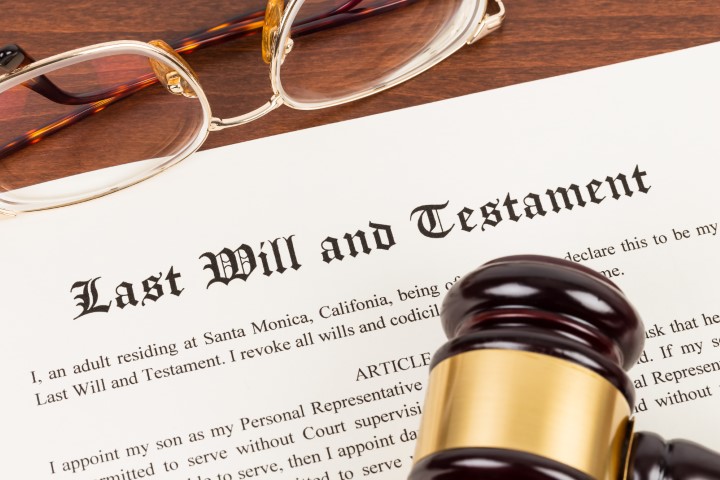April 17th 2023
 In my last article, we discussed why you would want to make a will. In this article, we review the legal process for obtaining authority to handle an Estate. We also consider why it is important to your family and heirs that you prepare a will during your lifetime, even if you do not feel you have a lot of assets.
In my last article, we discussed why you would want to make a will. In this article, we review the legal process for obtaining authority to handle an Estate. We also consider why it is important to your family and heirs that you prepare a will during your lifetime, even if you do not feel you have a lot of assets.
Let’s imagine Jane Doe wants to represent her father John Smith’s estate. What can she do once her father passes? It depends. If there is no will, then banks are less likely to work directly with Jane, even if the accounts have small amounts in them. This can be very frustrating for people like Jane. However, it is worth seeking legal advice even for small amounts. If Jane has an original will and the accounts are small enough, the banks may be willing to work directly with Jane to help her sort out the funds, cover funeral expenses, pay bills, etc.
 But what if there is a large amount of money in a bank account that belonged to John Smith? A large amount of money is usually any amount over $30,000 for most institutions. In our example, Jane Doe must prove that she is entitled to manage the affairs of the Estate. This means she must apply to the Court through a process referred to generally as “probate.” To do this, she will need to gather several documents, including the original will, and submit them to Superior Court, together with payment of any estate administration tax. A Judge will review the documents to see if there is any reason the Court cannot issue a “Certificate of Appointment of Estate Trustee with a Will”. If our friend Jane receives this Certificate, she will be able to present this to the bank and deal with the funds based on the terms of her father’s will.
But what if there is a large amount of money in a bank account that belonged to John Smith? A large amount of money is usually any amount over $30,000 for most institutions. In our example, Jane Doe must prove that she is entitled to manage the affairs of the Estate. This means she must apply to the Court through a process referred to generally as “probate.” To do this, she will need to gather several documents, including the original will, and submit them to Superior Court, together with payment of any estate administration tax. A Judge will review the documents to see if there is any reason the Court cannot issue a “Certificate of Appointment of Estate Trustee with a Will”. If our friend Jane receives this Certificate, she will be able to present this to the bank and deal with the funds based on the terms of her father’s will.
Without a will, our friend Jane faces even more complications. What if Jane Doe is not John Smith’s only child? The court has no way of knowing which of John Smith’s children should administer the funds. Jane will need to have her siblings sign renunciations and consents, giving up their right to administer the estate. If her siblings are minors or face a disability, Jane may need to deal with the Office of the Children’s Lawyer or the Public Guardian and Trustee regarding the Estate, which adds more complexity. Lastly, Jane will need to deal with the administration bond. She is required to pay a bond when there is no will so that the Court can ensure that she will properly manage the estate, while also having cash as a security or insurance. This amount is set by the Estates Act section 37 (1) as double the amount of property that will be administered. If John Smith owned an $800,000 home mortgage-free, Jane Doe would need to pay  $1,600,000 into court until the estate is administered. While there are insurance companies that Jane can pay to have them assist with the bond, as well as legal motions that may waive or reduce this amount, not having a will results in a frustrating and time-consuming process that adds significant cost and delay to probate.
$1,600,000 into court until the estate is administered. While there are insurance companies that Jane can pay to have them assist with the bond, as well as legal motions that may waive or reduce this amount, not having a will results in a frustrating and time-consuming process that adds significant cost and delay to probate.
Even when there is a will, probate is subject to a number of considerations that lawyers can advise on to ensure an executor does not overpay the government. For instance, under some circumstances, land can be transferred without the need for probate and probate can be avoided altogether, saving roughly 1.5% taxation of the estate value. Knowing this can help an executor perform their functions in a timely manner and anticipate the value of their estate entitlements. A lawyer can also help review and complete all necessary documents and deal with the beneficiaries early on to avoid  disputes down the road. This becomes even more important if an executor was not named as the original executor in the will.
disputes down the road. This becomes even more important if an executor was not named as the original executor in the will.
Having drafted a will removes layers of complexity from the already challenging process of administering your Estate. A properly drafted will ensures that your money goes to people you want to benefit after you pass on and clarifies who will manage your estate (or is guardian to your children). Considering the example of Jane Doe above, preparing a will minimizes the costs and obstacles that your family must go through in order to access your assets and resolve your debts. If you are considering drafting a will, or require assistance in administering an estate, feel free to reach out to Liddiard Law for a free consultation.
Benjamin James Pinfold, BA JD CEA
Liddiard Law Professional Corporation